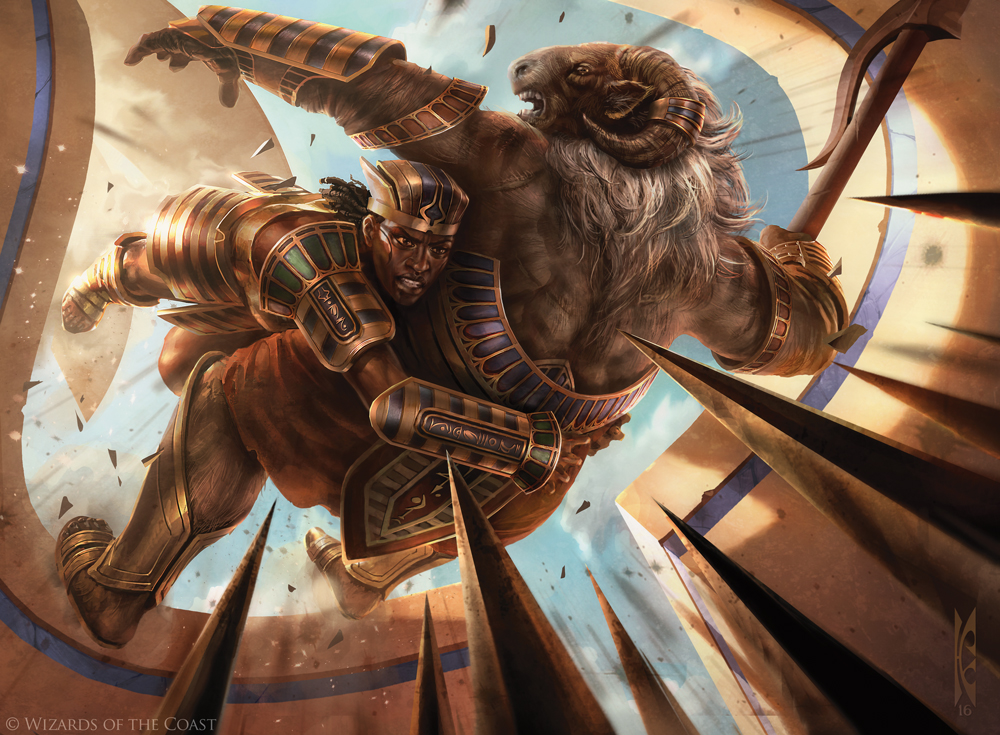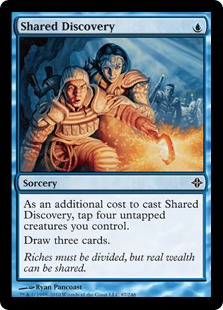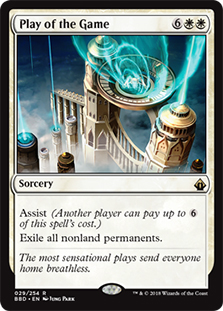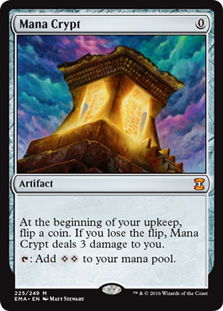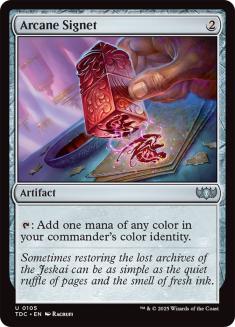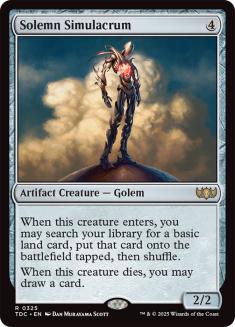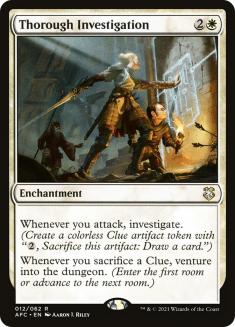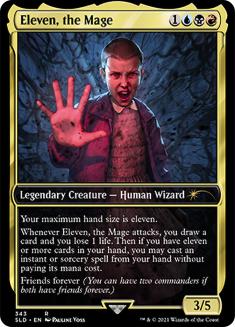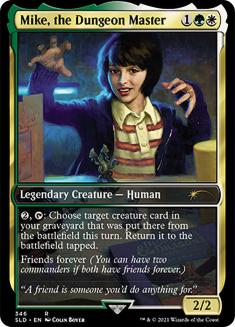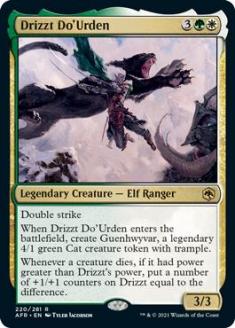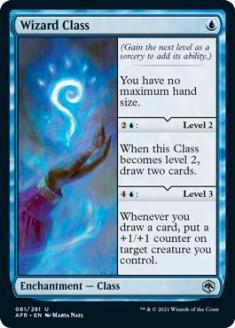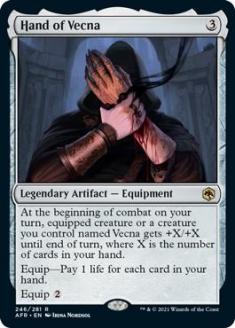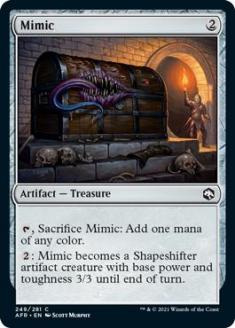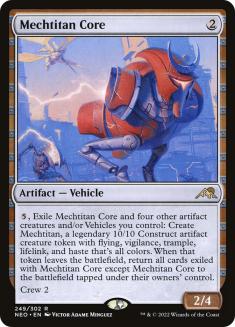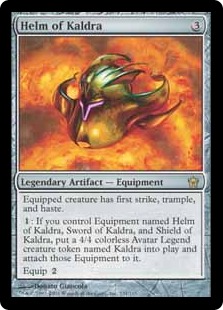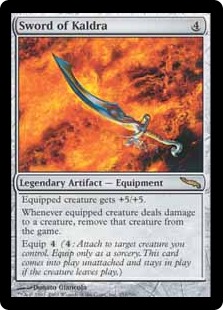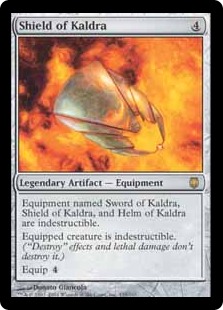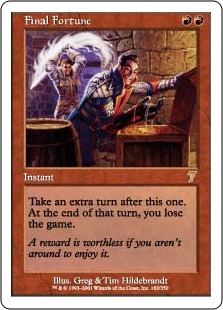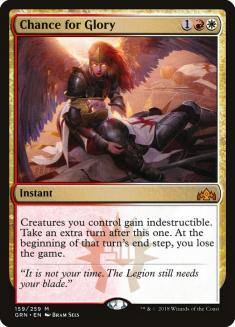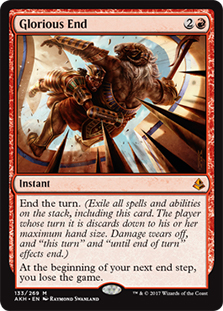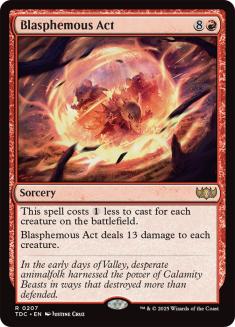Before I begin, I wanted to say this up front: Magic means lots of things to lots of people, and everyone has their own unique reasons why they enjoy the game. The goal with this article is to draw upon my lengthy time and experiences playing Commander to convey some wisdom I’ve learned along the way when it comes to the decisions you make when constructing your Commander deck and how you play the cards in a Commander pod. Some of you may disagree with what I suggest here, and that’s totally fine. There’s room in the game for everyone’s approach.
To begin, I’d like to quote the Commander philosophy document, which you can find in its entirety here. The parts that are most relevant to my thoughts today are the first few paragraphs and the closing sentence:
The Philosophy Of Commander
The rules of Commander are designed to maximize these experiences within a game of Magic. The addition of a commander, larger life total, and deck building restrictions emphasize the format’s flavor; they increase deck variance and add more opportunities for participation and expression.
The format can be broken; we believe games are more fun if you don’t.
The philosophy “statement” has changed over time, but the gist has been consistent from the very beginning of Elder Dragon Highlander: build and play your deck with “we” in the front of your mind, rather than “me.”
Motivation
Today I really wanted to talk about motivation. To me, this is the true key to finding enjoyable Commander pods to play in—find players with similar motives. Power level discussions are helpful for setting baseline expectations, but Rule 0 conversations should really be about a lot more than that. People can – and should – put powerful cards in their decks because they’re a lot of fun, but they can become problematic if coupled with a competitive motivation that’s out of line with what the rest of the pod is looking for. On the flip side of the coin, if a player has constructed their deck and makes play decisions based on having a laid-back, interactive, and chill game, those powerful cards are most likely not going to spoil the mood.
I’ve been playing Magic for 28 years, and my collection of cards is quite vast—I own a lot of “power” cards and enjoy playing them. But the vast majority of my decks are designed for games that take at least an hour to resolve; few have combos that end the game on the spot, and my intention is to win through damage, most often combat damage. To my mind, this approach allows each game that I play in room to breathe, where everyone gets the opportunity for their deck to do something cool and interesting and maximizes the chance that everyone walks away from the game having had fun.
But each person is different, and it’s up to each of us to consider what our motives are for playing a game of Commander. What is the game experience you want everyone at your table to have? Once you’ve got the answer to this question in mind, you can make better choices when figuring out what cards you want to put into your deck.
Choosing Cards for Your Deck
Many Commander players have a framework for the cards they put in each of their Commander decks—there’s a certain number of lands they start with, a certain number of nonland cards for mana ramp, a certain number of card draw spells, a certain amount of removal and interaction. But there is a lot of variability in the choices you make to fill these slots.
The larger number of fast ramp cards you add to your deck – cards like Rampant Growth, Mana Crypt, and every two-mana rock you can jam into your deck – the greater your chances of jumping ahead of your opponents by casting big spells way ahead of curve. Does that align with the sort of play experience you want with your Commander pod? If not, consider scaling back on the number of cheap ramp spells, and instead look for slower ones that offer more value towards the later part of the game. Solemn Simulacrum has been a format all-star for many years and is the perfect signpost for a longer, more interactive game. Consider reducing your faster ramp and swapping some of them out for ones that cost three or more.
For your removal suite, consider reducing the number of cards that sweep the battlefield and reset the game. Yes, it’s important for players to know not to overextend into a sweeper and hold back cards in reserve, but when battling three other opponents, you don’t always have that luxury. The only way to check someone who’s jumped ahead early might be to play out your hand, and then when another opponent sweeps the battlefield, it can feel terrible. I mean, that sort of thing is going to happen in games of Magic, but as the saying goes, “If all you have is a hammer, everything looks like a nail.” Diversify your answers so that you can more surgically answer threats that need answering without necessarily nuking the battlefield state back to the Stone Age.
In competitive Magic, your motive is generally to win the game, so when building your deck, you’re incentivized to choose the most efficient and powerful cards that will carry you towards that goal. But even though Commander has access to more powerful cards than just about any other Magic format, Commander is designed for a social experience, to be slower and be more interactive. This means there are higher-mana cards that don’t immediately win the game that you can’t play anywhere else, so why not put them in your Commander decks? Choose cards that fit a theme, or have artwork that you love. Find some obscure card that you never see anyone else play, and make it your signature spell.
Mini-Quests and Pet Cards
A few months back, I wrote an article called “How to Win Every Game of Commander You Play.” A section of that article talked about adding mini-quests and pet cards to your deck. When you add these cards, synergies, or silly combos that bring you joy, you broaden what it means to win each game of Commander.
Recently, I received the Secret Lair x Stranger Things cards. As a huge fan of the show, I was extremely excited about getting the cards and building decks around them. I wasn’t entirely sure what to do with them initially, but I figured it would be something around Clue tokens, since just about all the legends either directly or indirectly care about making or sacrificing Clues. But there was one problem—I had already made an Eloise, Nephalia Sleuth deck that I liked very much, so I already had a “Clues matter” deck. I didn’t particularly want to take it apart, but would a second Clue deck feel different enough to justify building a second one?
The breakthrough happened while I was sifting through my collection pulling Clue cards and ran across Thorough Investigation.
I paused and thought, “Hm, what if I add some venture into the dungeon cards?” I really loved the mechanic, I have Standard and Alchemy dungeon-delving decks on Magic Arena, and I have a Nadaar, Selfless Paladin Commander deck that I love. Maybe I could split the difference between Clue tokens and delving into the dungeon?
Then something clicked—when we first meet the four young boys on Stranger Things, they’re playing Dungeons & Dragons, and D&D is often brought up throughout the various seasons. Just last year, Magic: The Gathering dipped its toes in the D&D waters with the Adventures in the Forgotten Realms expansion. With the friends forever mechanic, I could build a five-color deck with Eleven, the Mage and Mike, the Dungeon Master as the commanders, and literally cram in any of the D&D cards from the Adventures in the Forgotten Realms expansion and its Commander decks that I wanted to… and so my “Friends Forever Playing D&D” Commander deck was born!
You can find the decklist here on Archidekt if you want to check it out. It’s clunky, it doesn’t have all that much pinpoint removal, and there are pretty much no battlefield sweepers, but I’ve literally never had as much fun as I did playing the deck after I built it. Being able to play a game of Magic with the Stranger Things kids next to Drizzt Do’Urden, Wizard Class, Hand of Vecna, and Mimic was a peanut butter in chocolate revelation
I was even able to add cards from the Saturday Morning D&D Secret Lair: Unbreakable Formation, Hero’s Downfall, and of course Commander’s Sphere. Literally being able to play out these cards over the course of eight or more turns is so much winning for me at a personal level, it doesn’t matter if I’m able to actually win the game of Magic or not.
But you don’t have to make your entire deck adhere to a particularly wacky theme to add joy to your games; Magic is full of mini-quests within cards, and you should definitely put some of them in your decks. One recent one is Mechtitan Core—who wouldn’t want to summon forth Mechtitan, a legendary 10/10 Construct artifact creature token with flying, vigilance, trample, lifelink, and haste?
The beauty of this? It’s big, it’s splashy, it’s cool… but it’s not necessarily game-ending, since it’s vulnerable to any number of commonly played removal spells. It reminds me of assembling the Kaldra Equipment cards and summoning forth a Kaldra token!
Again, generally, assembling Kaldra isn’t going to immediately win the game (though indestructibility makes it a little more difficult to remove). But it’s big, it’s splashy, and it’s cool, and it will be a big moment in the course of a Commander game.
No Guts, No Glory
Another example of choosing a particular game experience for the people I play with are cards I wrote about in the article “No Guts, No Glory! Epic Storytelling in Commander.”
While these cards are powerful, they also have built-in risk that literally says “you lose the game” right there in the text box. While you can mitigate the risks with some other cards you can play (check out the article for details), sometimes you don’t have that safety net, and you just have to run it out there.
Each time you cast one, you’ve immediately grabbed everyone’s undivided attention. First off, hardly anyone plays these cards specifically because they are so risky, and it’s easy to get hung up on that phrase “you lose.” But you know what? You’ve already won, no matter what happens next! Almost every time I’ve played one of these cards, my opponents get excited, spectators get excited, I’m excited, and the moment between the time I’ve played the card and the end of my next turn is what everyone remembers about the game when they walk away.
Playing these cards is not only a gift for me, it’s a gift for everyone else too, because the stakes have just been raised through the roof. There’s an epic story unfolding right in front of us!
Do Unto Others
One last point—if you find a particular card or type of cards unpleasant to play against, chances are pretty good that others feel the same way, which is why I generally steer clear of putting those cards in my own decks. When picking cards for my deck, I do my best to consider how my opponents will feel about playing against those cards and make my choices accordingly.
Letting Your Motives Inform Your Lines of Play
Once you’ve built your deck, it’s time to play your deck, and this is another angle where keeping your motives in the front of your mind is important. A phrase that often pops up in my mind while playing Commander is, “Just because you can do that, doesn’t mean you should.”
In competitive Magic, you always want to make the most efficient or powerful play – if your opponent casts something, and you have mana up and an answer, you’re going want to answer it because that’s the smart line of play that should advance you towards victory. I see this happen a lot on Commander streams I play in or watch, and for many people that play pattern is as natural as breathing. While I’m guilty of it myself, in recent years I’ve tried to play with a lot more restraint. I’ve changed my internal dialog from “Is this the smart play?” to “Will this make the game more fun?” Just because you have the mana and opportunity doesn’t mean you have to cast that card.
I recently played a game of Commander on stream, and we’d played for about an hour and everyone’s battlefield was quite well-developed. There had been a decent amount of interaction, and at least one battlefield sweeper had reset the game. I drew Blasphemous Act and was pretty excited about it because at least two other players had much more threatening battlefield states than I did, and I’d be able to be the first player to deploy creatures afterwards.
But then I thought about how the game would go from here. My follow-up creatures might have led me to victory eventually, but it would take quite a few more turns to do it, and it was far from guaranteed. We’d already played for quite a while, and everyone had “done the thing” with their deck outside of winning. We’d all had a lot of fun already… so I decided the best move to maximize fun was to just forget about Blasphemous Act and let the game continue along its path. It ended a few turns later, and everyone seemed to thoroughly enjoy the overall game experience.
Another example: I drew a Vandalblast, which was the perfect card to answer one opponent’s artifact-heavy deck. But there was a problem—another opponent was playing a nongreen deck and struggling to make land drops, and was heavily relying on several Signets to participate in the game. Blowing up all the artifacts was absolutely the smart play that would have improved my chances of winning dramatically, but it also would have pretty much shut one of my opponents out of the game unless they drew a bunch of lands that had been so elusive from the top of their deck. I held off, and eventually the artifact deck won, but everyone got to “do the thing” and I think the overall experience was positive for each person.
Rule 0 Conversation
I think finding people who have similar motivations to yours when it comes to playing Commander is key to everyone having an enjoyable time, and is more helpful than “power level” discussions alone. Talk honestly about everyone’s motives in deck construction and how they want to play during Rule 0 pre-game conversations, and I think you’ll find the good time you’re looking for. What do you think?
Talk to Me
Do me a solid and follow me on Twitter! I run polls and get conversations started about Commander all the time, so get in on the fun!
I’d also love it if you followed my Twitch channel TheCompleteCommander, where I do Commander, Brawl and sometimes other Magic-related streams when I can. If you can’t join me live, the videos are available on demand for a few weeks on Twitch, but I also upload them to my YouTube channel. You can also find the lists for my paper decks over on Archidekt if you want to dig into how I put together my own decks and brews.
And lastly, I just want to say: let us love each other and stay healthy and happy.
Visit my Decklist Database to see my decklists and the articles where they appeared!

